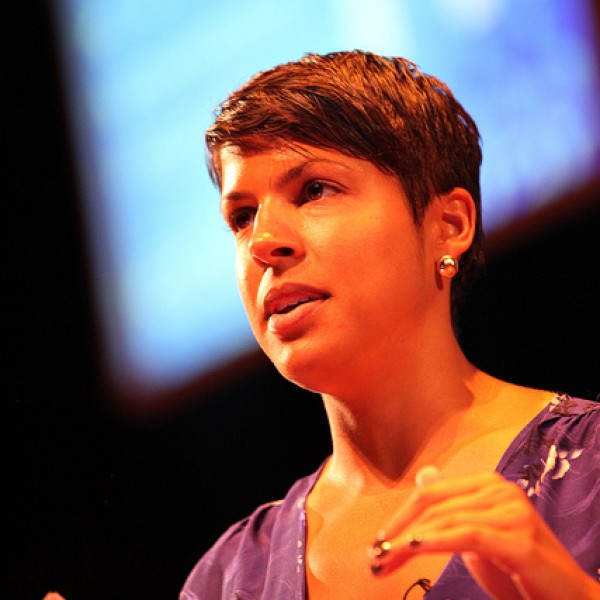“I’m hoping to challenge the audience to think critically about our role as advocates for digital democracy. Are we focused on the right problems? Where are our blind spots?”

Personal Democracy Forum is in less than two weeks, and we’re reaching out to some of the speakers for a quick preview of their respective talks and panels. What follows are a few words from Catherine Bracy, Code for America’s Director of Community Organizing, who will deliver a talk entitled “Public Engagement Is Broken. Are You Part of the Problem?”
So, for people who aren’t familiar with your work, how does it relate to civic tech?
Code for America’s mission is to build government that works for the people, by the people in the 21st century. We do that by collaborating with government on improving service delivery—in the health, safety and justice, and economic development areas—through technology. We also focus on improving the public’s relationship with government by creating innovative spaces and channels (sometimes digital) where government and residents can meet.
I understand you’ll be speaking at the conference about how public engagement is broken. Is this public engagement with government or with communities or something else entirely? You will also address how someone can tell if they are part of the problem; are people in the audience going to be squirming when you get there?
I’m speaking specifically about the public’s engagement with government. I’m certainly hoping to challenge the audience to think critically about our role as advocates for digital democracy. Are we focused on the right problems? Where are our blind spots? Why haven’t we been able to significantly move the needle on the public’s sense of trust in government? But, I’m also really hopeful and plan to share some bright spots I’m seeing.
The theme of the conference this year is the future of civic tech. As briefly as you like: Where do you think civic tech is going, what do we have to look forward to, and what pitfalls should people working in this sector be aware of?
I think we’re at a point in the civic (gov) tech movement where we can move from building apps to show what’s possible to really thinking strategically about how we can implement technology to make structural change inside government. We are beginning to measure our success not just by how many users a particular app gets, but by how much impact a tool has on a social outcome, or by the kinds of process and policy changes that happen within institutions as a result of building a tool. In terms of what to watch out for, I think we’re going to need to pay a lot of attention to privacy as we help governments open more data. But generally, there are lots of pitfalls whenever you try to change the status quo. As someone, can’t remember who, said, “the first ones through the wall are always the bloodiest.” But the friction is part of the process. It’s how we know we’re getting stuff done. And we’re extremely excited about what’s next.